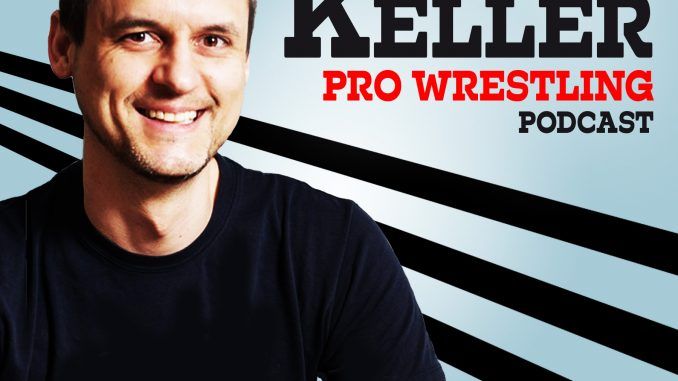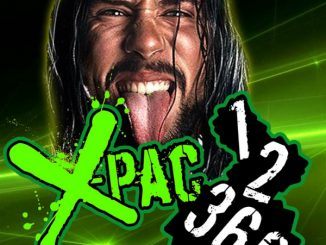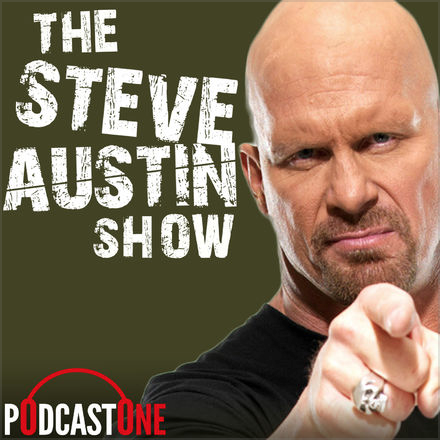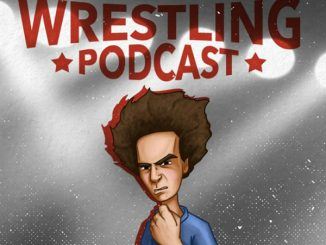
The Wade Keller Pro Wrestling Podcast
Air date: July 28, 2017
Recap by: Jeff Rush, PWPodcasts.com Specialist
DIRECT LINK TO LISTEN/DOWNLOAD
Top Stories
– The deal Stan made with himself when he decided to get into wrestling.
– The first time Hansen met Bruiser Brody.
– Hilarious story of Bruiser Brody pretending to be a model employee when breaking into wrestling.
– The wrestling legend that got J.J. Dillon started in wrestling.
– The excellent story of Hansen’s time as AWA Champion and leaving the territory.
Show Rundown
Wade opens up interview Friday with the Hot Five Topics of the Week.
Topic number one: Brock Lesnar-Jon Jones situation. This was recorded the day before the fight and Jon Jones calling out Lesnar afterwards. He says Dana White is downplaying the potential feud because he doesn’t want anyone to look past UFC 214. Wade feels Jones is UFC’s best hope of being a consistent million-buy star. He says a match against Lesnar is the fastest way of getting there.
Wade says WWE is affected by this. Vince doesn’t want Lesnar losing to Jones before next years WrestleMania and would draw the line at allowing Lesnar to fight if Lesnar were still World Champion. He then has a great point:
“They’re two worlds, one is scripted entertainment, the other is unscripted entertainment. By the way, they’re both entertainment, ‘entertainment’ is just a word that’s used wrong all the time. UFC fighting is entertainment. WWE’s simulated combat is also entertainment. They’re both entertainment. One just happens to be scripted and produced and orchestrated. And the other is scripted and produced and orchestrated, but then they fight for real in the end.”
Wade doesn’t expect Lesnar to leave SummerSlam with the WWE Championship and feels the Fatal Four-Way is a solution to Brock leaving without the tile, but without personally losing.
Topic number two: the finish of the A.J. Styles-Kevin Owens match at Battleground. Wade has been told numerous times off the record that there was an elaborate finish planned that didn’t happen. Wade goes on a bit more about the backstage fall out following the botched finish.
Topic number three: ‘Road Dogg’ Brian James lashing out on Twitter at fans reacting poorly to the lackluster Battleground PPV show. Wade says the show was terrible and speculates the numerous reasons as to why that is. James is heading up the Smackdown brand at this time and he took the reaction to the show very poorly. Wade feels James should stay off Twitter in this capacity and then elaborates on that point.
Topic number four: WWE financials. They came out last Thursday and WWE reported revenue of $214.6M, with $5.1M in profits. He says this is a record. At its current level of popularity, WWE Network is landing at around 1.1 Million customers. Wade says it’s up a bit, but very modestly and that WWE needs a new star if they want to see serious growth.
Topic number five: is the Broken Hardy gimmick and that it seems it will not be making it to WWE television. Wade discusses all the background info with this situation.
We then move to the live interview Wade along with Bruce Mitchell conducted at the Pro Wrestling Hall Of Fame with Stan Hansen and J.J. Dillon.
Hansen had a degree from West Texas and was coaching football. He was a fan of Terry Funk and Harley Race. While teaching and coaching, his dad ran into Dory Funk Sr., they discussed Stan and from there, Stan got in touch.
Stan says he already knew as a ball player to show respect to veteran members of a team, so that wasn’t a hard adjustment when entering wrestling. He gave himself 3-4 years to make something of the opportunity before he would decide to go back to teaching. He says he was 23 at the time, which puts our timeline here at the early to mid-’70s.
It’s crazy to think about all the potential wrestling greats that ended up as teachers and coaches at the high school, college, and hell, even professional level that might have been another Stan Hansen if only they’d been fans of wrestling and/or had an opportunity to get into the business at some point but that never did. Could Wade Phillips, for example, have become a legendary NJPW wrestler? Josh McDaniels is exactly one year older than John Cena. Could he have possibly become the face of wrestling over the past fifteen years and now be seen as one of the all time greats? Josh McDaniels challenging Ric Flair’s heavyweight title reign record? Everyone really needs to start watching wrestling right now. If you know a young coach, go talk to them.
Stan says he was in great shape, but teaching elementary PE. He felt he had so much left and was excited for the opportunity to get into the business and make some money.
Bruce then asks J.J. to weigh in on what he was doing in Amarillo at this time. He jokes he’s been beaten up by Hansen so much over the years that he doesn’t remember.
J.J. says he broke into the business in 1971 and Dory Funk was the champion. He says Funk’s job at that time was to enter a territory and build up his top challenger before moving on. J.J. feels he doesn’t get enough credit for all he did for the business. He then discusses the rest of the talent pool that existed at that point in Amarillo and all the other future names that would come out of there.
Stan says he had a chance to wrestle everyone at the card at that point and learned so much. There wasn’t a school at that point, he learned in the ring. Learning what not to do was more important that anything.
Dory Funk told Stan that his goal should be to make $1,000 per week. So between that and his self-imposed goal of having three years to “make it”, he had his goals defined.
In a cool moment of reflection, Stan says he then decided he wasn’t going to put the path of his career into somebody else’s hands. He wanted to have a say in what he was and wasn’t going to do. He didn’t see himself as a big outlaw that couldn’t be reasoned with. He did everything everyone else did; he just kept an eye on the bigger picture.
J.J. says Stan invested in his career and took what he was given. Talk then shifts to Bruiser Brody. J.J. says his reputation was that he was difficult to do business with, but that he drew money. Everyone always thought they’d do better than the previous guy when it came to handling Brody. J.J. says Brody wasn’t impossible; he just wasn’t going to be stepped on. J.J. says Stan learned a lot from Brody.
Stan talks about the week he arrived at West Texas as a high school recruit. He says he was being shown around and kept asking to see his dorm room. The person giving the tour kept putting that part off. Finally, they arrive at the door to the room and the tour guide tells him “You don’t have a choice on your roommates sometimes.” They go in and the one side of the room is very neat, the other is piled high with crap and a guy sleeping in the middle of it. The guy rolls over to see who’s there and the guide tells Stan “this is Frank Goodish,” and that’s the first time Stan Hansen met Bruiser Brody.
Stan says Brody broke into wrestling three years after him. Stan had been working on the road, arrived in Dallas and met with Bronko Lubish. Bronko told him they were breaking in another guy from West Texas named Frank Goodish, a really calm, nice guy. Stan thought maybe he had the name mixed up and was thinking of some other lunatic. Then Bruiser came in and Stan asked him what was going on. Bruiser said “Shh. I’m trying to get into the business. Be quiet, don’t go saying anything.”
Bruce then asks J.J. Dillon about his new podcast. Holy crap, look forward to written recaps of that one!
J.J. says he had kids late in life with his third marriage. He had twins when he was 50 and another when he was 52. He needs to provide for them and it’s hard to find a job in the real world after a lifetime spent in wrestling. He considered teaching school but wasn’t having any luck and ended up finding a job as a corrections officer. He just retired after 13 years.
J.J. grew up in Trenton, NJ and was a wrestling fan. He was hanging around the matches when a ref didn’t show up once, and he got the gig. He did it for eight years when he met Ed Farhat and got put to work in Detroit. He started at an older age, eventually wrestling Gene Anderson when he was 28. Things went from there. J.J. says you have to persevere, as there are many speed bumps in the way. If you love it and hang on, you can make something of yourself. He says you also need a little bit of luck. He and Stand both had it, but not everyone has. He notes that people are surprised to hear that he’s had 3,200 matches in his career even though most people remember him for his luckiest break – managing the Four Horsemen.
Wade asks Stan to plug his book and Stan confesses that the only wrestling book he’s ever read is J.J.’s book.
Bruce asks Stan about his time in Japan and how his and Brody’s style changed the tone there. Stan says at a certain point he and Brody were working for different companies – Brody for All Japan as a green guy and Stan at New Japan. Vince Sr. got Stan over there in the first place, and he appreciated that, but he chose to book himself there.
He then talks about the New Japan-All Japan war and being there with Hulk Hogan and being surprised when Abdullah the Butcher jumped.
Stan made the move to All Japan and hooked up with Brody. He says the style he and Brody were working was something most guys couldn’t pull off.
This lifestyle worked well for Stan because he was gone half the year, but also home with his family half the year. He preaches living below your means and saving money.
Bruce brings up Hansen’s presence at the All Japan Tag finals in a match between Brody & Snuka and the Funks. This took place on December 13, 1981. The video is out there on YouTube and it’s pretty awesome – the entrance and the aftermath.
Stan says he was asked to tell people what he was going to do prior to going to the ring. He said he didn’t always know. He said doing things on the spot is the best way to get a genuine reaction.
Bruce tells a story about Ricky Steamboat and Jay Youngblood and praises Hansen’s conditioning.
Stan talks about the psychology employed by All Japan at that time and how they pushed the limit and it worked.
Bruce asks Stan about his marketability in Japan helped him back in the states. Stan says he felt that he was representing All Japan first, but was never told by Baba to do so. He worked with Ole Anderson in Georgia and was given a good opportunity. Once Ole got fired, Dusty Rhodes took over and things started going in the entertainment direction and Stan knew his time was over there.
Stan knew his role was to be the guy going after the belt, not to be the champion. Then the AWA made him the champ. After a few months of working with job guys (which he refers to as carpenters). Stan asked to work with Curt Hennig. He was told he’d be turning the belt over to Nick Bockwinkle.
Wade brings up the fact that he was an AWA guy, growing up with it as a kid and was excited when Hansen appeared. He tells a story about how Stan came out on one night swinging his cowbell and running towards the crowd and scared everyone. It was what Wade loved about wrestling.
Stan says the idea of him dropping the title was sprung on him in an elevator two hours before the show by Verne Gagne. He refused to do so, saying he wasn’t a placeholder and hadn’t made any money by being champion.
In a terrific moment, he then takes a deep breath and confesses that it’s difficult for him to talk about such a thing because of how “old school” he is. This kind of emotion and reverence for respecting the business makes this brief segment the highlight of the interview for me.
Verne got in Stan’s face about his refusal to drop the belt. Stan says he didn’t get aggressive with Verne but put his hand on his chest. He Knew Bockwinkel was right behind Verne. He wasn’t worried about him, but knew Nick had worked for Verne for fifteen years and where his loyalty was. Stan walked away with the belt in the end. He eventually sent it back, following legal threats, though he says it may have gotten run over a few times.
That concluded part one of a two part broadcast of this interview. The next part includes audience questions.
Review: This was the first part of a two-part interview. As Wade has noted, Hansen hasn’t agreed to be interviewed often and is quite reluctant to discuss the business openly in any format. As was mentioned in this recap, Hansen confessing as much, for me, was really the highlight of this episode. Wade has also made note of what a big deal it was for him to have the opportunity to interview Hansen, and that regard and respect really comes through in the interview, from both Wade and Bruce Mitchell. I very much look forward to the second half of this discussion.
Interview aside, the format Wade uses for the “Interview Friday” show is to do a rundown of the top five wrestling stories of the week and then get to the interview. On one hand, I appreciate the rundown, but on the other, I was also eager to get to the interview. I’m willing to give this format a chance. Regardless, this was (and will continue to be, I’m sure) an awesome interview that everyone should go out of their way to catch. 9/10
Timestamps
5:55: Show begins
6:06: Brock Lesnar-Jon Jones
12:49: A.J. Styles-Kevin Owens Battleground finish
15:22: Road Dogg lashing out on Twitter
19:00: WWE financials
24:01: Broken Hardys
26:39: Interview with Stan Hansen and J.J. Dillon
About Jeff:
Jeff Rush is a life-long fan of professional wrestling. He’s attended the last match of both Andre the Giant and Stone Cold Steve Austin’s careers and two of the three matches of the Rock-Austin WrestleMania trilogy. As a child, he was once yelled at by John Tenta for sitting too close to him on a bench at Hershey Park. Jeff listens to way too many wrestling podcasts and watches way too much WWE Network. He also catches as much indie wrestling as he can when it comes through his home of New York City. Find him on Twitter @jefflikesstuff.




Be the first to comment